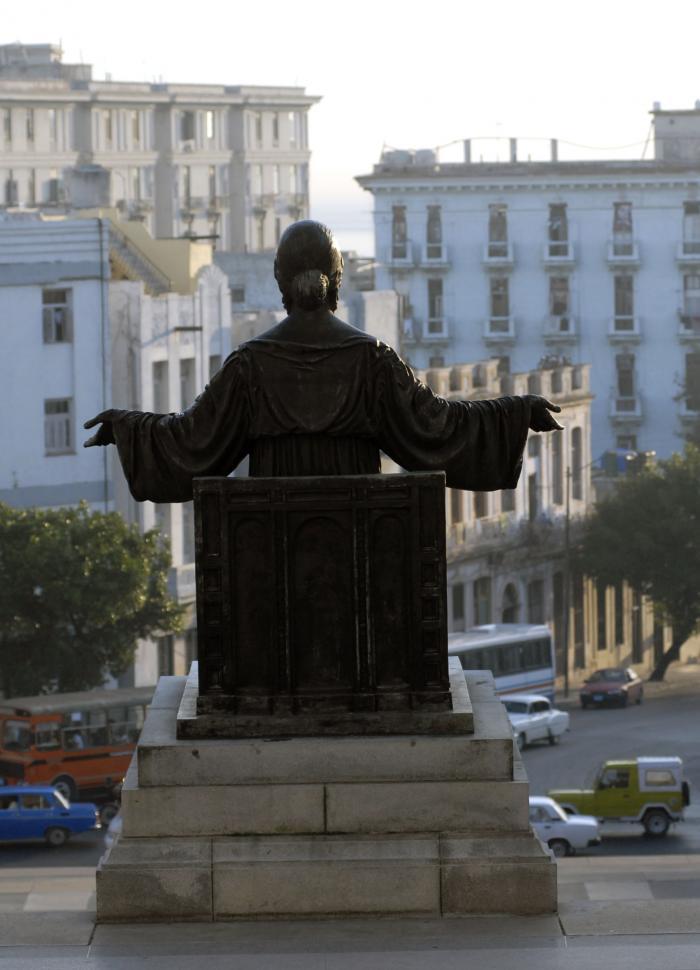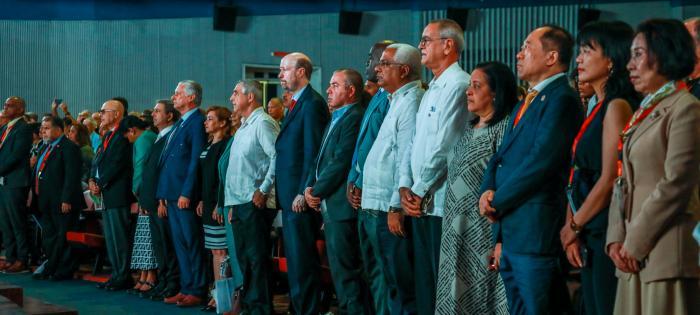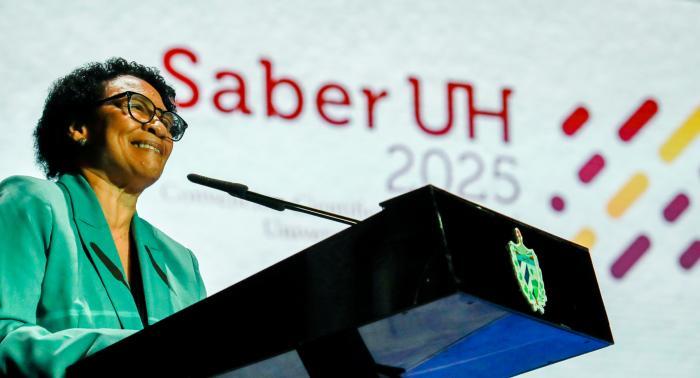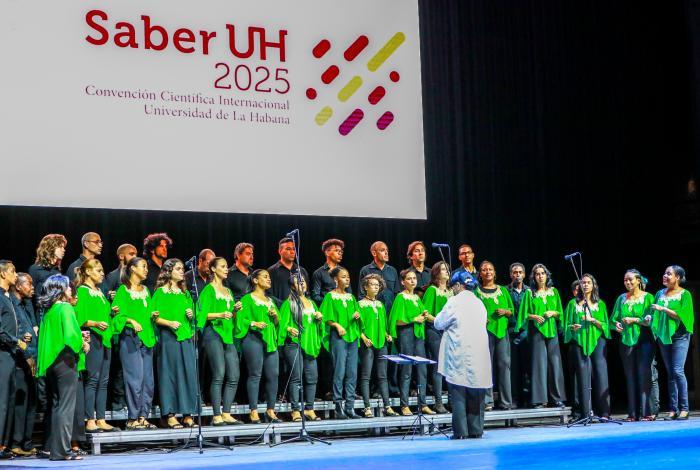
The second edition of the International Scientific Convention Saber UH 2025 began yesterday in Havana as a favorable space for deep debate, intergenerational dialogue and exchange of knowledge to contribute to the service of Cuban society from the scientific knowledge that originates from it.
The First Secretary of the Central Committee of the Communist Party and President of the Republic, Miguel Díaz-Canel Bermúdez, attended the opening of the event, which has among its objectives to be an expression of the Government Management System based on Science and Innovation, in addition to being conceived as a multidisciplinary space that demonstrates that knowledge has no borders or single disciplines.
The meeting, which brings together more than 2,000 delegates and more than 400 guests from different countries, includes a broad program designed for scientific events, meetings with students, colloquiums and seminars, which position the capital's university as a manager of a transformative education, which focuses its efforts on the progress of higher education, practical action and sustainable development.
Eduardo Martínez Díaz, vice prime minister, in the inaugural conference, referred that science and the Cuban educational system have played a determining role in the training of professionals, for the achievement of achievements in Education, Health and Sports.
"Cuba is one of the countries that have trained the most professionals. In the field of Health, for example, it has achieved significant advances such as the elimination of mother-to-child transmission of HIV; it also has one of the lowest infant mortality rates in the Latin American and Caribbean region."
He added that in the sports sector, the largest of the Antilles has relevant milestones, such as being among the ten countries with the most Olympic medals per number of inhabitants.
He also pointed out that one of the most relevant results in recent years was the development and production of vaccines against COVID-19, as a result of a world emergency situation.
In all these results, she added, "there is a lot of effort from teachers without whom it would not be possible to develop science".
On the other hand, Dr. Miriam Nicado García, rector of the University of Havana, said that history cannot be written without the presence of that house of higher studies, which "is written every day by professors, researchers, students and other workers.
"From this perspective, universities have a role in the production and promotion of new ideas and, in this event, academics and researchers from different fields should move away from unnecessary formalities and pay attention, with new ideas, to current problems in order to find solutions," he added.
He emphasized that the Saber UH Convention - the main scientific event of the Alma Mater - should represent an opportunity to foster interdisciplinary collaboration, promote scientific innovation and strengthen links between different disciplines, at a key moment for scientific and technological development in Cuba and the world.
Accompanying the President at this event were Susely Morfa González, member of the Secretariat of the Central Committee of the Party and head of the Department of Attention to the Social Sector; Inés María Chapman Waugh, Deputy Prime Minister; Walter Baluja García, Minister of Higher Education, and other leaders of the Party and the Government.


















